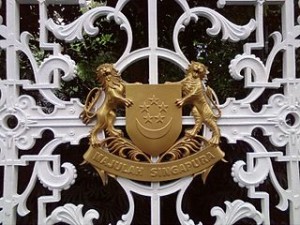 A common and misconstrued belief about Meritocracy is that it is an ideal from which arises the justification of entrenched elitism. Many have suggested that the word is merely a myth, or even an impossible standard—although admittedly virtuous—towards which we should strive. British writer Alan de Botton puts forth an argument that the trend in the modern Meritocratic society, in which we regard success as the highest standard, is a major source of anxiety; that those who fail to attain status in a Meritocratic society seemingly have only themselves to blame.
A common and misconstrued belief about Meritocracy is that it is an ideal from which arises the justification of entrenched elitism. Many have suggested that the word is merely a myth, or even an impossible standard—although admittedly virtuous—towards which we should strive. British writer Alan de Botton puts forth an argument that the trend in the modern Meritocratic society, in which we regard success as the highest standard, is a major source of anxiety; that those who fail to attain status in a Meritocratic society seemingly have only themselves to blame.
We assert that there has never been a true representation of a Meritocratic society to date. At the simplest level Meritocracy is a means to elect representatives into positions of influence, and to ensure that those individuals are qualified to make decisions pertaining to their field of expertise; for instance, the chancellor of the exchequer will be voted in specifically by civilians who have attained qualifications in economics. Similarly, the education minister will be elected by teachers. Furthermore, a person’s qualifications will be judged purely on their merit. To this extent we aim to ensure that arbitrary judgements, such as race, religion, and family background, become obsolete as an influence upon a person’s credentials.
The logical implications of Meritocracy are that it must strive towards attaining a universal equality of opportunity. If merit is the sole determining judgement of competency, then the only fair means of maintaining a fair Meritocracy is to maximise the opportunity afforded to all children, so that they may fulfil their potential, and in turn benefit the whole of society. Without this reciprocal relationship between the individual and state, there remains no real basis whereby to define any state as justifiably Meritocratic. We propose that the Millionaire’s Death Tax is the only way to redistribute wealth fairly within society; therefore, it is an absolute requirement by which the Meritocratic ideal is attained. Meritocracy is not opposed to hierarchy, but it rejects the notion that positions of influence should be reserved for a small portion of privileged individuals.
Equal opportunities and Meritocracy are two sides of the same coin. You can’t have one without the other. Without equality of opportunity, the word Meritocracy is merely a rhetorical device used to justify entrenched elitism. It is a perversion of the term—and worryingly, this ploy is frequently regurgitated by politicians today. The facts reveal that today’s system of government is overwhelmingly plutocratic, which means that it is inherently anti-meritocratic!
Perhaps the most glaring example of a failed Meritocracy in modern times is Singapore. Singapore has the world’s highest percentage of millionaires, with one out of every six households enjoying at least one million US dollars in disposable wealth. This excludes property, businesses, and luxury goods, which if included would further increase the number of millionaires, especially as property in Singapore is among the world’s most expensive.
The last 40 years have seen tremendous social mobility in Singapore. It has been one of the most successful economies in the world. So, why is Singapore now suffering the world’s starkest income inequality? Why has social mobility suddenly halted? This enigma can be explained fiscally. Singapore abolished its estate tax in 2008, which ensures it has zero means from which to prevent dynastic powers forming against the interests of the people. Without social mobility, Meritocracy swiftly degenerates into everything it is fighting against—namely, a capitalist fascist state with an elite class that are able to pass on extreme wealth, generation after generation.
In an interview for Asia One News, published Friday, Apr 19, 2013, Singapore’s Deputy Prime Minster Tharman was asked the question, “In 20 years’ time, what kind of Singapore do you hope for [sic] your four children?” Tharman answered that he would like to see Singapore’s “meritocracy” evolve into a much more equal society. He wants people’s attitudes to change towards the less fortunate blue-collar workers; although he doesn’t think that Singapore’s inequality can be solved through tax policy, or fiscal policy. He thinks instead that “[it’s] about changing the way we think about responsibility to society. And it’s not just a matter of being patronising, you know—I want to help someone who’s less advantaged. It’s also recognising the role that everyone plays in keeping the society going. Every job counts, and improving on every job is what this is about. Respect mastery in every job; respect hard work in every job—that has to be our culture.” [1]
It is most certainly agreeable that we should all recognise the value in every job and role in society, and that equally, we should respect mastery and hard work; but it is all for nothing if DPM Tharman doesn’t recognise that inheritance and privilege are the dual drivers of inequality. It has taken just one generation for Singapore to become at once a world-leading economy, and at the same time a highly class-divided state. This makes Singapore not only a glaring example of the indispensability of an authentically Meritocratic system, but also a testament to the necessity of the Millionaire’s Death Tax for the achievement of a thriving and sustainable society based upon equality of opportunities.
by Thomas Payne
http://news.asiaone.com/News/Latest%2BNews/Singapore/Story/A1Story20130419-417173.html






